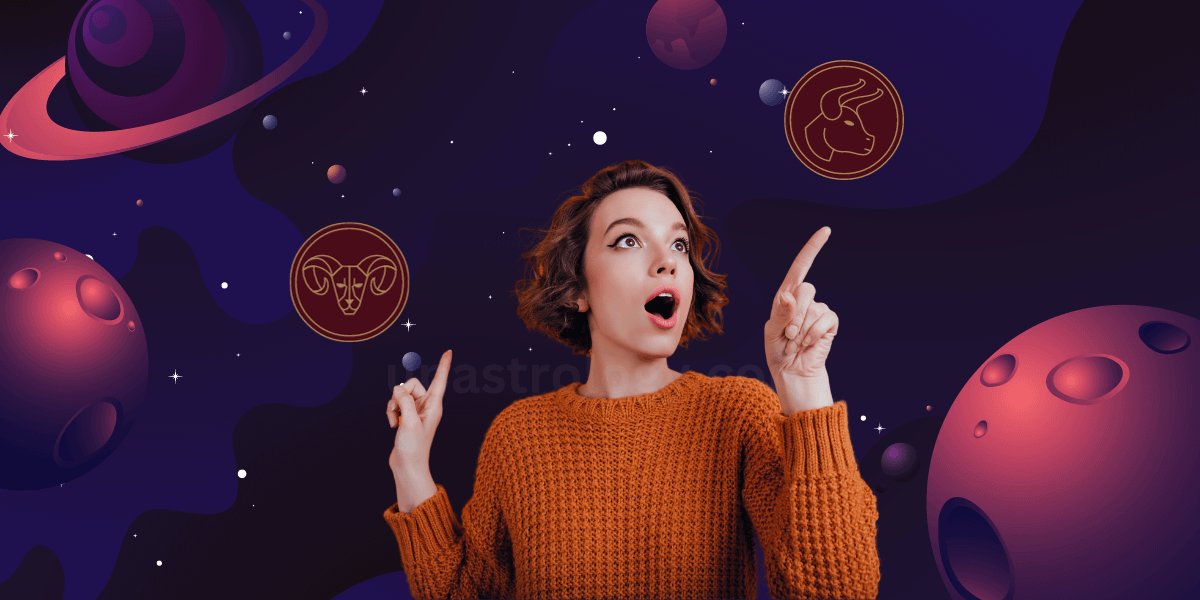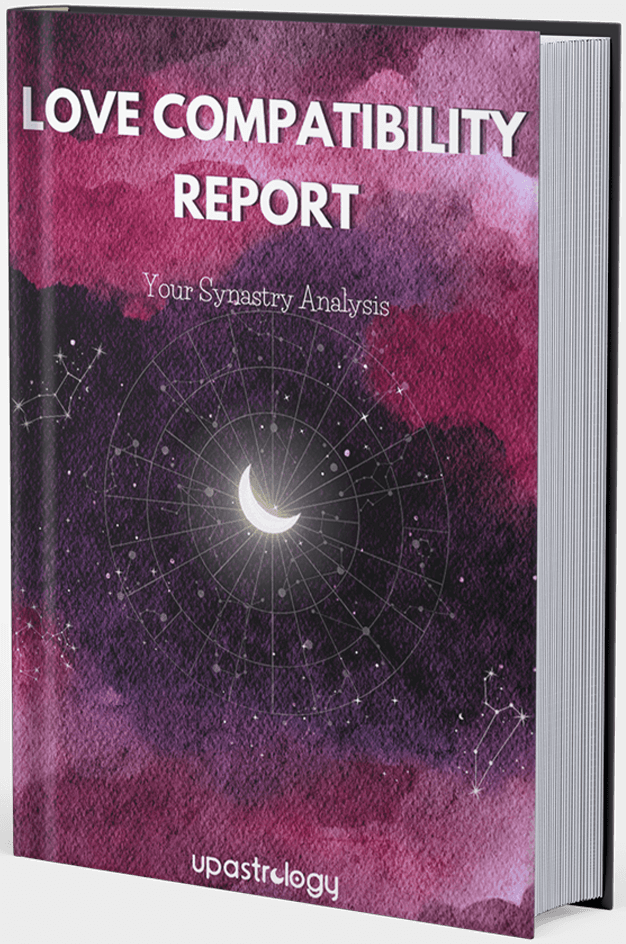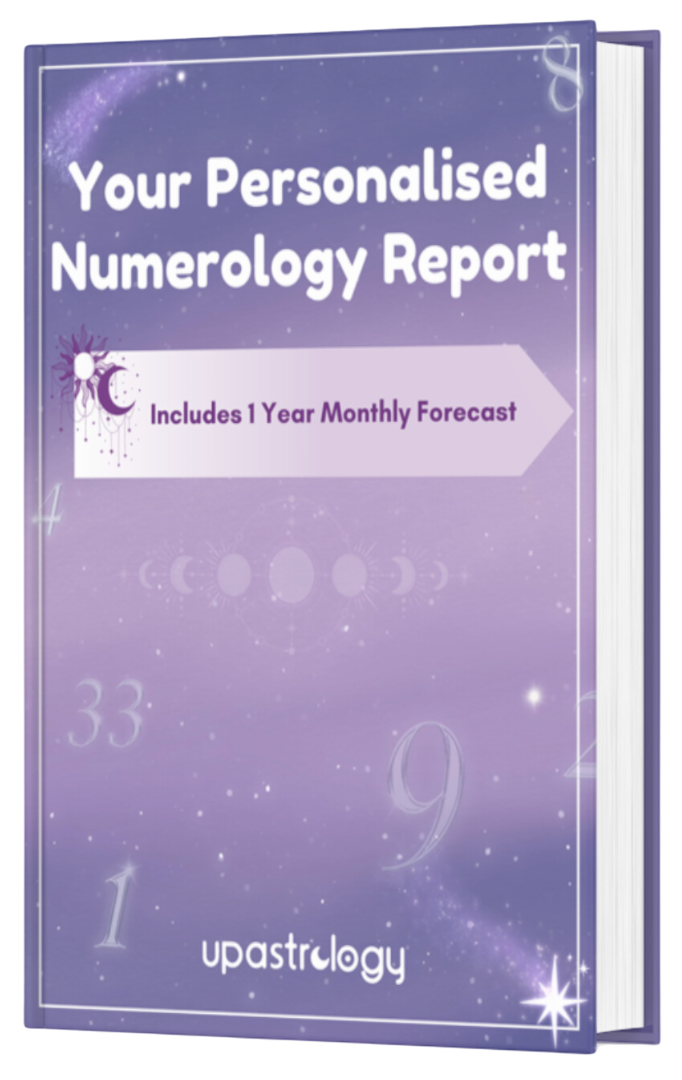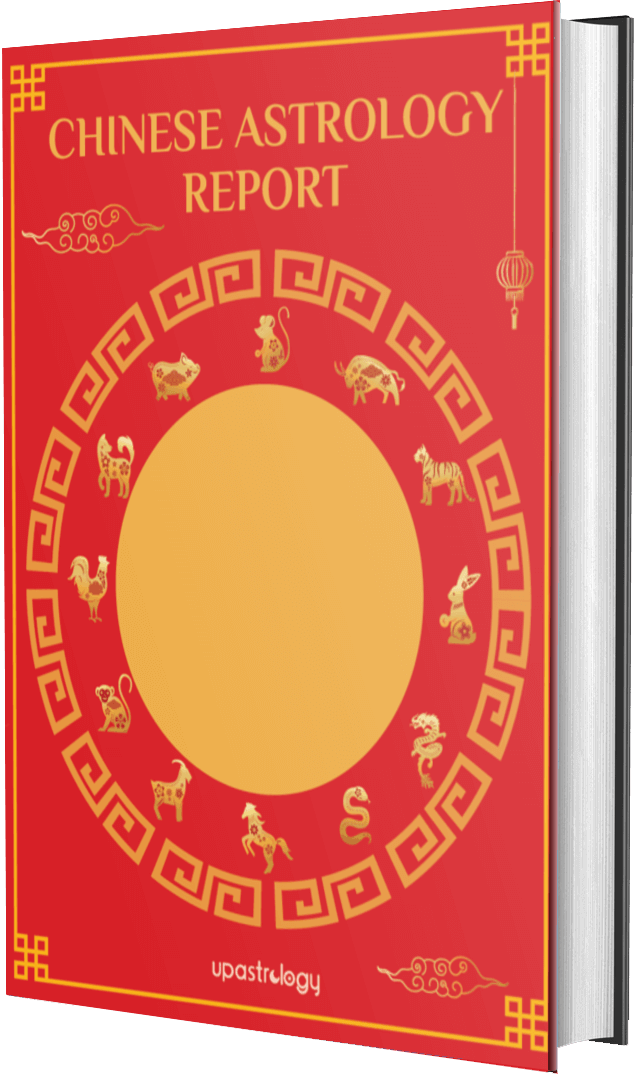How to Understand Your Emotional Nature with Astrology

“Why do I feel so deeply?” Have you ever thought that?
Do you sit back and think about how you cannot let your emotions take control of you?
Have you ever found yourself overwhelmed by emotions?
Do you often question yourself about why you react so strongly to certain situations?
You know you need to manage your emotions and handle your feelings better, but you just don't know how to!!! It's frustrating and even disappointing at times.
You speak to friends, read books, see therapists, and do whatnot…
And yet, you find yourself in the same emotional loops.
That weight that you carry all the time on your chest must be heaving, no?
Not being able to trust yourself with pure, genuine, and intense emotions could be disheartening.
But don't worry. There are answers to these questions.
You do not need to be all over the place with your big feelings
There's a better way to understand and address your emotions.
Take a deep breath because this is where you will finally learn how to process your emotions and express your feelings with empowering force.
Now you might think…
There we go… yet another blog with some general tips that hardly ever work.
But understand that this blog is anything but general.
The information that we've provided here is not only unique and authentic, but also super personalized.
That's because to help you handle your emotions better, we go to your birth chart.
And just like your fingertips, your birth chart is unique. There's no other birth exactly like yours, even if they are born at the same place and time as you. Even your twin won't have a chart that is exactly the same as you.
That's because your birth chart explains your innermost self, which is only reserved for you. Your birth chart is a framework that has revelations about emotional nature. It can also provide you with practical strategies. So, you can manage your emotions in real-world situations.
Now, it's alright that you might not know a lot about finding your emotional nature from your birth chart. But don't worry. We'll walk you through the entire process - one step at a time.
First Things First - Let's Understand What Is a Birth Chart
A birth chart, also known as a natal chart, is a snapshot of the sky at the exact moment and location of your birth. It maps the positions of the Sun, Moon, planets, and other celestial points, laying them out in a circular diagram divided into twelve sections, called houses.
Each house represents different areas of life, while the signs and planets within them offer insights into your personality, behaviors, and emotional patterns. Your birth chart serves as a personalized blueprint that provides a detailed overview of your potential and challenges in various aspects of life.
If you don't have your birth chart, you can get it from here.
Understanding the Importance of Emotional Regulation
Now, before we move on to other steps and discussions, let's understand why even emotional regulation is important.
Our emotions influence how we think, behave, and interact with others. They even dictate our decisions and actions. In fact, it is our emotions that shape our experiences and the way we perceive the world.
In relationships, emotions help us build connection and empathy. When we are in touch with our emotions we can better understand and respond to the feelings of others. We are more involved with the people that we love and build the strongest relationships when our emotional needs are met.
Our emotions also serve as a compass for personal growth. They highlight the areas where we need to heal, learn, and evolve.
By being in tune with our emotions, we can navigate life's challenges with greater resilience and clarity, leading to more fulfilling and authentic lives.
What happens when our emotions remain unmanaged?
When emotions are not understood or managed effectively, they can become overwhelming and disruptive. Unmanaged emotions can lead to stress, anxiety, and depression, eventually affecting our mental and physical health.
In relationships, unchecked emotions can cause misunderstandings, conflicts, and emotional distance. That eventually leads to eroding trust and intimacy.
On a personal level, ignoring or suppressing emotions can stunt our growth. Not looking after emotions could leave us stuck in negative patterns and prevent us from reaching our full potential. Without emotional self-awareness, we may find ourselves reacting impulsively, making poor decisions, and struggling to maintain balance and well-being.
And that's why you need the right keys to your emotions and ways to process them, which only your birth chart can provide.
So how do you look at the birth chart to analyze your emotions better?
When it comes to understanding your emotional nature, three key components of the birth chart are particularly important: the Moon sign, the 4th house, and the Moon's aspects.
1. Moon Sign
The Moon sign represents your emotional core, revealing your innermost needs, instincts, and reactions. It shows how you feel and express your emotions, as well as what makes you feel secure and nurtured. If you don't know your moon sign, know it from here.
2. 4th House
The 4th house is also known as the house of home and family. It explains your emotional foundation and early life experiences. It represents your roots, your family background, and the environment you grew up in.
Analyzing the 4th house helps you understand how your upbringing has shaped your emotional patterns and what you need to create a sense of inner security.
3. Moon's Aspects
Aspects are the angles formed between the Moon and other planets in your birth chart. These aspects indicate how your emotions interact with other parts of your personality and life experiences.
Positive aspects (like trines and sextiles) suggest areas where you feel emotionally supported, while challenging aspects (like squares and oppositions) highlight potential emotional conflicts and areas for growth.
Understanding Your Moon Sign
Your Moon sign is the first step into your emotional world. It shows how you feel, react, and express your emotions.
Everyone's emotional world looks different. But we can still divide and decode the facts based on the moon zodiac.
Here's the gist…
1. Moon Sign Aries - People with Aries as a moon sign are emotionally assertive and independent. Quick to react but also quick to move on. They value directness and honesty in emotional expression.
2. Moon Sign Taurus - People of the Taurus Moon Sign seek emotional stability and comfort. These people value security and tend to be steady and patient. They find comfort in routines and physical pleasures.
3. Moon Sign Gemini - Geminis are emotionally adaptable and curious. They enjoy mental stimulation and communication. However, they may struggle with emotional consistency and thrive on variety.
4. Moon Sign Cancer - Cancer individuals are deeply intuitive and sensitive. They strongly need security and family connections. They are often nurturing and protective, but can also be prone to moodiness.
5. Moon Sign Leo - People with Leo Moon Signs are warm-hearted and expressive. They seek admiration and validation. Loyalty is their priority but when it comes to emotions, they are just as dramatic as Disney Princess.
6. Moon Sign Virgo - Virgos as Moon Sign is emotionally analytical and practical. They want everything organized and very detail-oriented. They can be critical but also highly supportive.
7. Moon Sign Libra - Libra Moon Sign individuals are always looking for balance and peace in all relationships. They like to be fair and avoid conflict. They enjoy social interactions and partnerships.
8. Moon Sign Scorpio - People with Scorpio as Moon Sign are filled with intense and passionate emotions. They are deep and authentic. Though being secretive, they are fiercely loyal. Their downside is that they have a strong need for emotional control.
9. Moon Sign Sagittarius - Sagittarius Moon Sign people are optimistic and freedom-loving. It's hard for them to give up their independence. They are emotionally honest and adventurous. They enjoy exploring new ideas and experiences.
10. Moon Sign Capricorn - Capricorns as Moon Sign is emotionally reserved and disciplined. They are pragmatic and like stability. They are reliable and steadfast. However, they may struggle with expressing feelings.
11. Moon Sign Aquarius - Emotionally detached and intellectual, Aquarians as moon signs are emotionally independent and unconventional. They enjoy participating in social causes and innovative thinking.
12. Moon Sign Pisces - People with Pisces as a moon sign are deeply empathetic, intuitive, and compassionate. They are sensitive but struggle with boundaries. They are imaginative and caring.
Looking at the moon sign is just one layer of your emotional self. To understand yourself more deeply, analyze the 4th House of your birth chart.
To analyze your 4th house, start by identifying the sign of the 4th house in your birth chart. This sign provides insights into the nature of your emotional foundation and your approach to home and family matters.
Next, look for any planets located in the 4th house, as these will further influence your emotional nature.
Steps to Identify the 4th House Sign and Planets:
1. Locate the 4th House: In your birth chart, start with the ascendant and count clockwise till 4. The sign at this point is the one that governs your 4th house.
Here's the description of how the sign of the 4th house might look
4th House Aries
A 4th house cusp in Aries suggests a dynamic and sometimes volatile home environment. Individuals with 4th house as Aries may have grown up in a setting that required them to be independent and assertive. This can lead to a strong need for personal freedom and action-oriented approaches to emotional security.
4th House Taurus
With Taurus on the 4th house cusp, there is a focus on stability and comfort within the home environment. These individuals often value a peaceful and harmonious household. People with set up in their birth chart might have grown up in a steady, secure setting, leading to a strong need for material security and a comfortable living space.
4th House Gemini
A 4th house cusp in Gemini indicates a lively and communicative home environment. These Individuals may have grown up in a setting where learning and intellectual stimulation were encouraged. This can lead to a need for variety and mental engagement in their personal life and home.
4th House Cancer
With Cancer on the 4th house cusp, there is likely a deep connection to family and home. People with 4th House as Cancer often find comfort and security in close-knit family relationships and may be very nurturing and protective of their loved ones. Emotional bonds and a sense of belonging are crucial for their emotional well-being.
4th House Leo
A 4th house cusp in Leo suggests a home environment where self-expression and creativity are encouraged. Individuals may have grown up with a sense of pride in their family and home. This can lead to a strong need for recognition and a desire to create a warm, welcoming, and sometimes dramatic home environment.
4th House Virgo
With Virgo on the 4th house cusp, there is an emphasis on order, cleanliness, and practicality within the home. Individuals may have grown up in an environment that values hard work and attention to detail. This can lead to a need for a well-organized and efficient household, as well as a tendency to be critical of themselves and their surroundings.
4th House Libra
A 4th house cusp in Libra indicates a home environment that values harmony, balance, and aesthetic appeal. Individuals may have grown up in a setting that emphasized fairness and cooperation. This can lead to a strong need for peace and beauty in their personal life and home, as well as a desire for harmonious relationships.
4th House Scorpio
With Scorpio on the 4th house cusp, there is a focus on deep emotional intensity and transformation within the home environment. Individuals may have grown up in a setting where emotional depth and privacy were important. This can lead to a need for emotional security and a strong desire to control their home environment.
4th House Sagittarius
A 4th house cusp in Sagittarius suggests a home environment that values freedom, adventure, and learning. Individuals may have grown up in a setting that encouraged exploration and open-mindedness. This can lead to a need for space and a desire for a home that feels expansive and culturally enriched.
4th House Capricorn
With Capricorn on the 4th house cusp, there is a focus on structure, discipline, and responsibility within the home environment. Individuals may have grown up with an emphasis on achievements and practical matters. This can lead to a strong sense of duty and a desire for stability and control in their personal lives.
4th House Aquarius
A 4th house cusp in Aquarius indicates a home environment that values individuality, innovation, and unconventional approaches. Individuals may have grown up in a setting that encouraged progressive thinking and independence. This can lead to a need for freedom and a desire for a unique and forward-thinking home environment.
4th House Pisces
With Pisces on the 4th house cusp, there is a focus on compassion, empathy, and a sense of spiritual connection within the home. Individuals may have grown up in an environment that values imagination and emotional sensitivity. This can lead to a need for a peaceful and nurturing home, as well as a tendency to seek emotional escape through creativity or spirituality.
Identify Planets in the 4th House
2. Identify Planets in the 4th House: Look for any planets within the boundaries of the 4th house. Each planet brings its own energy and influence to your emotional foundation.
Here's what planets in the 4th House would look like:
Sun in 4th House
The Sun in the 4th house suggests a strong focus on home and family as central aspects of one's identity. These individuals often find a sense of purpose and vitality through their family connections and domestic life. There is a desire to create a solid foundation and be a source of strength and stability for their loved ones.
Moon in the 4th House
The Moon in the 4th house amplifies the emotional significance of home and family. These individuals often have a strong attachment to their roots and may feel most secure when surrounded by family. Their moods can be heavily influenced by their home environment.
Mercury in the 4th House
Mercury in the 4th house indicates a home environment filled with communication and intellectual activities. These individuals may have grown up in a household where learning and conversation were encouraged. They are likely to value mental stimulation and may enjoy discussing family history or engaging in intellectual pursuits within the home.
Venus in the 4th House
Venus in the 4th house suggests a love for beauty and harmony in the home. These individuals may strive to create a peaceful and aesthetically pleasing living space. Family relationships are often characterized by warmth and affection, and there is a strong desire for a loving and comfortable home environment.
Mars in the 4th House
Mars in the 4th house can indicate a more tumultuous home environment. These individuals might have experienced conflicts or a need to assert themselves within the family. As a result, they may be very protective of their personal space and quick to defend their emotional boundaries. There is often a strong drive to make their home a place of action and initiative.
Jupiter in the 4th House
Jupiter in the 4th house suggests a home environment that is expansive and optimistic. These individuals often have a strong sense of family unity and may benefit from a supportive and generous family background. There is a desire to create a home that is open and welcoming, often marked by a sense of abundance and growth.
Saturn in the 4th House
Saturn in the 4th house indicates a home environment that may have been structured and disciplined. These individuals might have experienced responsibilities or limitations within their family life, leading to a strong sense of duty and a desire for stability. They may take on significant responsibility in their family or seek to build a secure and orderly home.
Uranus in the 4th House
Uranus in the 4th house suggests an unconventional or unpredictable home environment. These individuals may have experienced sudden changes or unique family dynamics. There is a strong desire for independence within the home, and they may seek to create a living space that reflects their individuality and innovative spirit.
Neptune in the 4th House
Neptune in the 4th house indicates a home environment that is infused with a sense of mystery or spirituality. These individuals may have grown up in a setting where boundaries were blurred, or there was a strong emphasis on compassion and empathy. They often seek a peaceful and serene home environment and may be drawn to artistic or spiritual pursuits within the home.
Pluto in the 4th House
Pluto in the 4th house suggests a home environment that is intense and transformative. These individuals may have experienced deep emotional undercurrents or power dynamics within their families. There is often a strong desire to uncover hidden truths and to create a home that is a sanctuary for profound emotional regeneration and growth.
While the 4th house provides a foundation for understanding your emotional roots and home environment, the aspects formed by the Moon with other planets in your birth chart offer additional layers of insight into your emotional dynamics.
These aspects reveal how different energies interact within your psyche, influencing your emotional reactions and relationships in profound ways. Let's explore how the Moon's aspects can shape your emotional landscape and provide opportunities for personal growth.
Moon's Aspects and Their Influence
In astrology, the Moon's aspects are the angles formed between the Moon and other planets in your birth chart. These angles reflect the dynamic interactions between different parts of your personality and life experiences. Aspects can be harmonious or challenging, influencing how you handle emotions and relationships.
Positive Aspects
Positive aspects, such as trines (120 degrees) and sextiles (60 degrees), indicate areas where your emotional responses are naturally balanced and supportive.
Trine (120 degrees): A trine between the Moon and another planet suggests an easy flow of energy.
For example: A Moon-Jupiter trine can bring emotional optimism and a sense of well-being.
Sextile (60 degrees): A sextile between the Moon and another planet indicates opportunities for growth and positive interactions.
For instance, a Moon-Venus sextile can enhance emotional harmony and affectionate relationships.
Challenging Aspects
Challenging aspects, such as squares (90 degrees) and oppositions (180 degrees), highlight areas where you may experience emotional tension or conflict.
Square (90 degrees): A square between the Moon and another planet signifies internal conflict and stress.
For example, a Moon-Mars square might indicate impulsive emotional reactions and struggles with anger management.
Opposition (180 degrees): An opposition between the Moon and another planet represents external challenges and polarities.
For instance, a Moon-Saturn opposition could manifest as emotional restrictions and difficulties in expressing feelings.
Aspects Between the Moon and Other Planets
Here are a few examples of how specific aspects between the Moon and other planets can influence your emotional nature:
1. Moon-Sun Aspects:
Conjunction: A conjunction between the Moon and the Sun can bring a strong alignment between your emotions and core identity, leading to a sense of inner harmony.
Square: A square between the Moon and the Sun may create inner tension, making it challenging to balance your emotional needs with your sense of self.
2. Moon-Mercury Aspects:
Trine: A trine between the Moon and Mercury enhances emotional intelligence and the ability to articulate feelings clearly.
Opposition: An opposition between the Moon and Mercury might lead to conflicts between your emotions and rational thoughts, making it hard to make decisions.
3. Moon-Venus Aspects:
Sextile: A sextile between the Moon and Venus promotes emotional warmth and loving relationships.
Square: A square between the Moon and Venus could result in difficulties balancing personal needs with relationship demands, leading to emotional dissatisfaction.
4. Moon-Mars Aspects:
Trine: A trine between the Moon and Mars can bring emotional courage and a proactive approach to dealing with feelings.
Square: A square between the Moon and Mars might indicate emotional volatility and struggles with anger management.
Understanding the Moon's aspects gives us a detailed view of how specific energies influence our emotional responses. However, to get the full understanding of our emotional nature, it we need to consider the roles of the Sun and Ascendant signs.
While the Moon sign reveals our inner emotional world, the Sun and Ascendant signs shape how we express and manage these emotions in our daily lives.
Let's delve into how these elements work together to create a balanced emotional expression.
The Role of the Ascendant and Sun Sign
Ascendant (Rising Sign): The Ascendant is the sign that was rising on the eastern horizon at the exact time of your birth. It represents your outward personality, the mask you wear in public, and how you initially present yourself to others. The Ascendant influences how you react to new experiences and how you approach the world, which can impact how you express your emotions externally.
Sun Sign: The Sun sign represents your core identity, ego, and sense of self. It embodies your conscious mind and is often associated with your life purpose and overall personality. The Sun sign influences your general approach to life and can shape the way you integrate and express your emotions.
When you understand the roles of the Ascendant and Sun sign in relation to your Moon sign, you get a full picture of your emotional expressions and needs.
How to Balance Emotional Needs?
Balancing the interplay between your Moon, Sun, and Ascendant signs can lead to better emotional equilibrium and a more harmonious life. Here's how you can achieve this balance:
Firstly, identify Core Traits. For that, look at your Big 3.
Moon Sign: Reflect on your Moon sign's emotional needs and instinctual reactions. Understand what makes you feel secure and nurtured.
Sun Sign: Consider your Sun sign's core identity and how you express your true self. Recognize the traits that define your conscious personality.
Ascendant: Acknowledge how your Ascendant shapes your outward behavior and initial responses to the world. Note how others perceive you and how you approach new situations.
Next, integrate your emotional insights:
Align Your Inner and Outer Worlds: Try to relate your emotional needs (Moon sign) with your core identity (Sun sign) and outward behavior (Ascendant).
For example, if your Moon sign craves security but your Ascendant is adventurous, find ways to create stability while embracing new experiences.
Find the balance between expression and authenticity: Make sure that your emotional expressions, which are influenced by the Moon are in sync with your true self (represented by the Sun) and how you present yourself (Ascendant). This alignment can lead to more authentic and fulfilling interactions.
So, have you discovered something new about your emotional nature through your birth chart?
Understanding your emotional nature is a powerful tool for personal growth and well-being. Your birth chart is a unique map that can guide you toward greater self-awareness and emotional resilience.
But to understand the real depth of you, you need to dig in further and consider many perspectives. Only then can you get the full picture of your emotional self. For which our detailed birth chart report would be your best friend.
Share on:
Explore More
Full Moon
Reflect, Renew, Transform: What the Pisces Full Moon Means for Every Zodiac Sign
Month Transits
How October 2023 Planetary Shifts Will Transform You!
new moon
Manifest the Magic of the New Moon Rituals For Your Zodiac.
Featured Blogs

Birth Chart
How to Find Your Life Purpose From Your Birth Chart?

Astrology
What Vibe You Carry! The Influence of Your Signature Sign In Astrology

Vertex Sign













